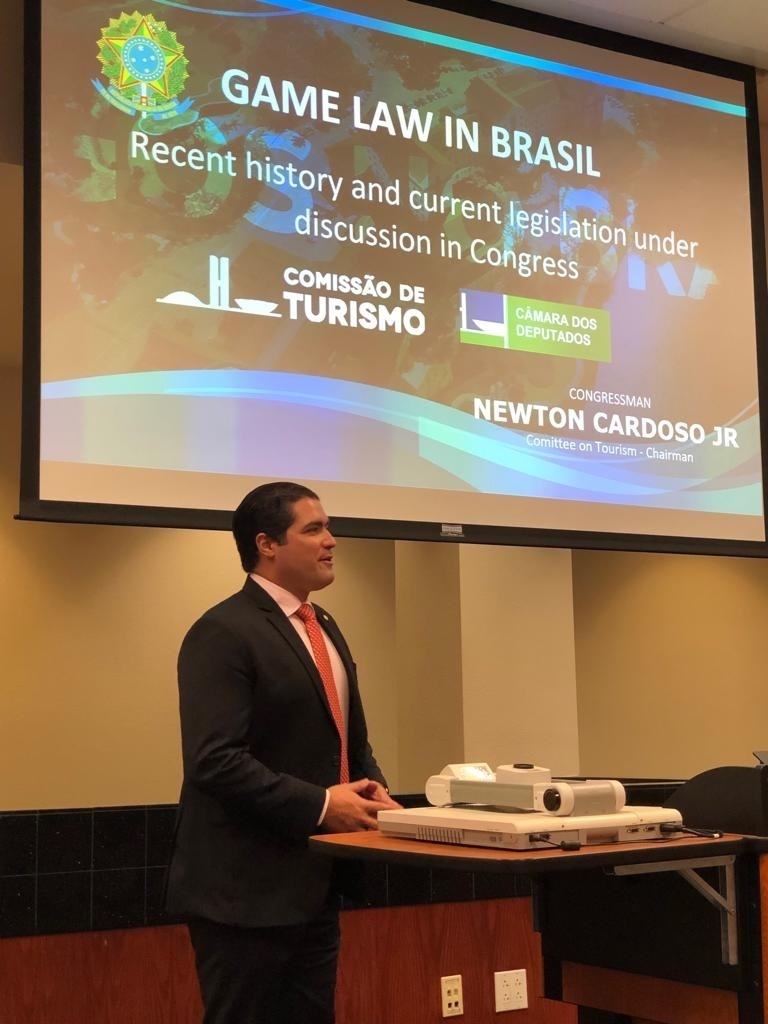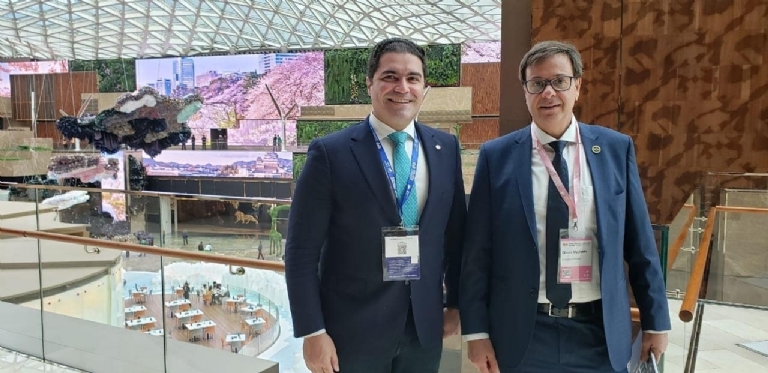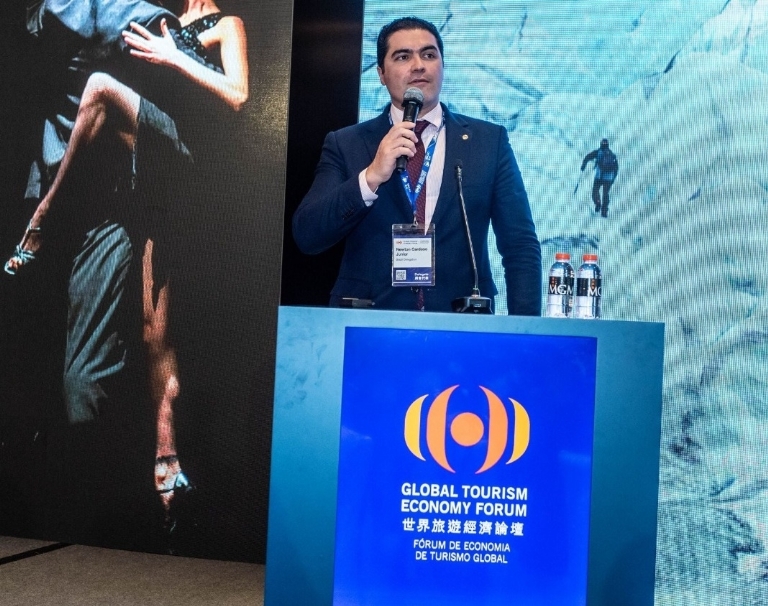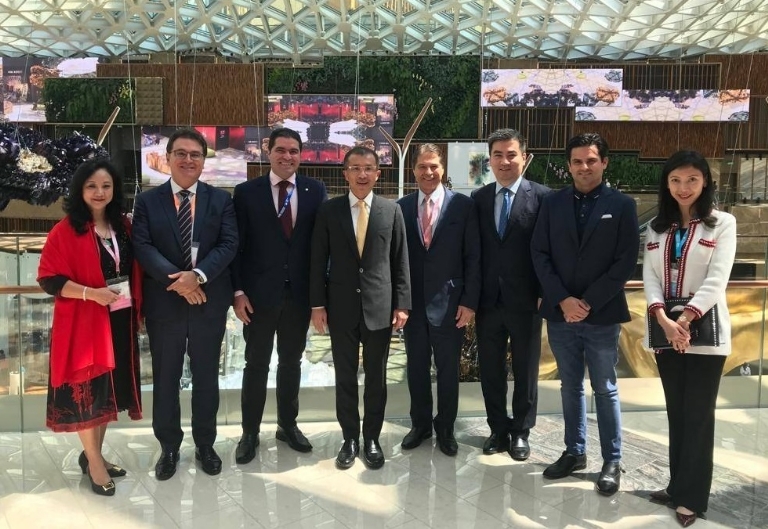

Luiz Carlos Prestes Filho: Money betting games managed by the private sector in Brazil are on the agenda at the Chamber of Federal Deputies. How is the discussion on the topic?
Newton Cardoso Jr.: The theme of gaming regulation in Brazil is something that causes controversy, without a doubt. There is a general understanding between a segment of opinion makers and the traditional media that this activity has strong links with organized crime, in addition to promoting money laundering, encouraging prostitution, and negatively impacting people's lives because of addiction to gambling, or ludopathy. But are these arguments solid and are they the real cause of the rejection, specific to this social segment, of the legalization of the activity? The truth is that it is exclusively up to the National Congress, the representative house of the people and the cradle of the rules that govern life in society, the decision to regulate and legalize gaming in Brazil. The theme is divided into three areas within the scope of internal discussion. First, considered the main axis of activity organization in Brazil, the Regulatory Framework for Gaming.
Although several bills are in progress in the Senate and in the Chamber of Deputies, Bill 442/91 is what appears to gather most of the GDP of gaming in its legal text. This Bill received a favorable opinion in 2017 by the Special Committee constituted for its appreciation. It covers Casinos, Bingos, Sports Bets, Video Games, Virtual or Electronic Bets and also the Jogo do Bicho. Second, the theme of Lotteries. There is an endless battle between concentrating power at the federal level to exploit this type of game or allowing States and Municipalities to also constitute their legitimate concessions for this specific type of game. Here are also the draws, capitalizations, and other derived models. An area of the gaming economy that is judicialized due to the desire of different federal entities to grab the tax collection that comes from lotteries. Third and last, sports betting.
In 2018, Congress “advanced a house” on the regulation board by allowing sports betting in Brazil. This law has not yet “succeeded”, basically because the regulation by the Federal Government has not yet hit the right fiscal model for the market and also because the participation of Sport is still an uncertainty and lacks an aggregator who talks to all the stakeholders of the Sport in the country. All of this said above serves to guide the answer to the question: How does Congress enter the theme of gaming in 2021? Basically, without major advances. If there is a positive point, it is the declared desire of the Government's economic area to see gaming as part of the federal revenue under President Bolsonaro's mandate. Another highlight is a recent survey conducted among Congressmen, in which more than 60% declared themselves in favor of the regulation of the activity in Brazil. 2021 is a year of recovery, in every way. On the agenda of the Congress are projects such as Tax, Administrative Reform, Central Bank Autonomy, etc.

Is the text of the Regulatory Framework for Gaming ready?
As we discussed above, Bill 442/91, known as the Regulatory Framework for Gaming, is the legal text that releases the largest number of activities among the known games of fortune. It is the ideal text, although it may encounter occasional difficulties when in fact it goes to plenary. There is no priority of one activity over another in the text, but the return of the Casinos in Brazil is emblematic and has an aura of nostalgia that piques both the curiosity of many and the repudiation of some. On the other hand, the discussion about the rise of electronic games over physical ones is marginal from the text of the law. This process, apparently irreversible, happens everywhere on the planet and may have been strongly catalyzed due to the pandemic that originated in 2020.
Has there been an excessive appreciation of Casinos Resorts?
For sure. The feeling that is perceived in Congress is that the release of the Casino Resort already means an advance, a paradigm break in the legalization of the gaming sector. That old maxim: the good is the enemy of the great.

What is the order of priorities?
There is no prioritization of a particular region to the detriment of another in the law, and even Congress does not accept such a classification. It is important to remember, of course, the need to let the market self-regulate itself in terms of project implementation feasibility. If a Casino fits in any city, it is market studies that will say, never Congress.
What is the Bill that is being processed most strongly in the National Congress?
Bill442 / 91. It prefers integrated resorts, but the amendment that I approved with the rapporteur at the time of the Special Commission argues that specific regions of the country, regions such as hydro-mineral resorts can be exempted from installing resorts as a requirement to have Casinos operating in these.
Could the municipalities most affected during the COVID 19 pandemic benefit from the regulation? Tax revenue above R$ 30 billion (US$5.6b) is estimated with the legalization of the gaming sector in Brazil. In addition, more importantly, 500,000 jobs can be generated by installing several concessions throughout Brazil. Tourism, first to be impacted by the pandemic and probably the last to get rid of the harmful effects of it, can be highly benefited and has a direct link with the legalization of the activity.

Does the tradition of casinos in Minas Gerais deserve respect and recognition?
Minas Gerais is a case in point in terms of operation and the history of gaming. It was not enough to have received the first Casino in Brazil, in 1897 in the city of Caxambu, there is a moral debt with cities in the water circuit, our hydro-mineral estates, as the economic viability of several of them was reaped without notice, more than 70 years ago, when gaming were suddenly banned. With the amendment I approved in Bill 442 / 91, a hope is renewed: the right of these resorts to operate Casinos without the need to build integrated resorts. It would be the independent casinos, so recognized by the UNLV studies in Las Vegas, comparing the different North American regions as to the revenue and operation of gaming.
Have you visited countries where gamins is a natural part of economic activities?
I visited Portugal, Las Vegas in the USA, Macau and Foz do Iguaçu in Brazil. I know from personal experience Punta del Este in Uruguay, London in England, and Atlantic City in the USA. In each mission that I participated with colleagues of the Tourism Commission I was able to consolidate the following thought: Brazil is losing the tram of history for not legalizing gaming and fixing the thought of releasing only integrated resorts is to hinder the right to development for different regions in our vast country.

In April, the Federal Supreme Court (STF) will judge whether or not the Criminal Misdemeanor Law was approved by the Citizen Constitution of 1988. Can regulation happen via the Supreme Court?
The Supreme Court is the institution that most values stability in the country and that seeks more legal security, regardless of the controversy that may exist on any topic. I doubt whether our highest court would propose such a change without first aligning with Congress what the consequences of a possible revision of the legal text, however old-fashioned its content may seem.
Does the federal executive, the ministers, admit regulation?
There is division within the Executive. Such a division could be resolved by a presidential will, but certainly the Economy, more favorable than contrary, has a decisive weight when analyzing the positive impact of jobs and tax collection in the long run.
Luiz Carlos Prestes Filho
Executive Director of the newspaper Tribuna da Imprensa Livre; Filmmaker, graduated in Documentary Film Direction for Television and Cinema from the State Film Institute of the Soviet Union; Specialist in Cultural Economy and Local Economic Development; He coordinated studies on the contribution of Culture to the GDP of the State of Rio de Janeiro (2002) and on the productive chains of the Music Economy (2005) and Carnival (2009); He is the author of the book “The Greatest Show on Earth - 30 years of the Sambadrome” (2015).
Source: Tribuna de Imprensa Livre